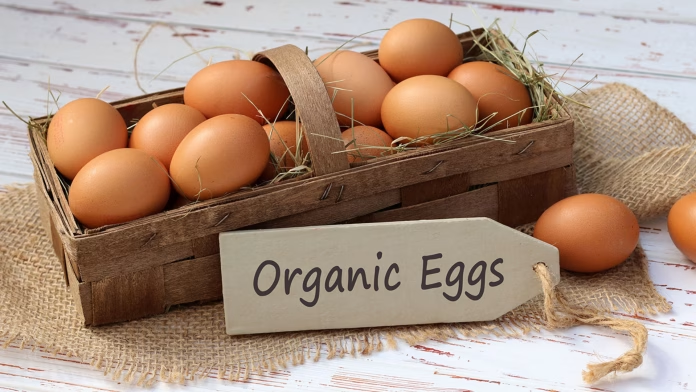Organic eggs have become increasingly popular in recent years, as more people become aware of their health benefits. Organic eggs are eggs produced from chickens that are fed organic feed, and are free from antibiotics, hormones, and other synthetic chemicals.
Organic eggs are usually more expensive than conventional eggs; however, the cost is often worth it for the health benefits.
Unlike conventional eggs, organic eggs contain higher concentrations of nutrients, such as omega 3 fatty acids, vitamins A and E, and lutein and zeaxanthin. These health benefits make organic eggs a smart choice for the whole family.
Health benefits of organic eggs:
Organic eggs have many health benefits, making them a smart choice for the whole family. Organic eggs contain higher concentrations of omega 3 fatty acids, vitamins A and E, and lutein and zeaxanthin than conventional eggs. Omega 3 fatty acids are important for heart health, while vitamins A and E are important antioxidants. Lutein and zeaxanthin are important for healthy eyesight and skin.
Organic eggs also contain fewer toxins than conventional eggs. The chickens that produce organic eggs are fed organic feed, so they are not exposed to the same level of pesticides, herbicides, and other toxic chemicals that are found in conventional feed. This means that organic eggs are free from antibiotics, hormones, and other synthetic chemicals.
Why is it best to include organic eggs in breakfast?
Organic eggs are a great addition to any breakfast. They are rich in protein and other essential nutrients, making them a great source of energy for the day. They are also a good source of healthy fats and vitamins, which can help to keep you feeling full and satisfied for longer.
Eating organic eggs for breakfast can help to ensure that you are getting all of the essential nutrients you need, while avoiding the toxins found in conventional eggs.
Moreover, organic eggs are typically lower in cholesterol than regular eggs, which can make them a healthier option for people who need to watch their cholesterol intake.
Organic eggs are also a great way to add variety to your breakfast. You can make a variety of dishes with organic eggs, such as omelets, frittatas, quiches, and scrambles. You can also use organic eggs in baking, such as for pancakes, muffins, and cakes.
Things to consider:
While there are many benefits to eating organic eggs, there are also some potential downsides to consider.
First, organic eggs are typically more expensive than regular eggs, which may be a concern for some people.
Second, organic eggs have a shorter shelf life than regular eggs since they are not treated with the same preservatives. This means that they may not last as long in the refrigerator and may spoil more quickly.
Organic eggs also have a higher risk of carrying harmful bacteria like salmonella, as organic farms are not subject to the same strict regulations as conventional farms. However, it’s worth noting that the risk is still relatively low and can be minimized by handling and cooking the eggs properly.
While there are many options for breakfast, organic eggs stand out as a versatile and nutrient-rich food that can provide numerous health benefits. By swapping conventional eggs for organic ones, you can reduce your exposure to harmful chemicals, support animal welfare, and enjoy a more flavorful and wholesome breakfast experience. So why not give organic eggs a try and see how they can improve your morning routine?





